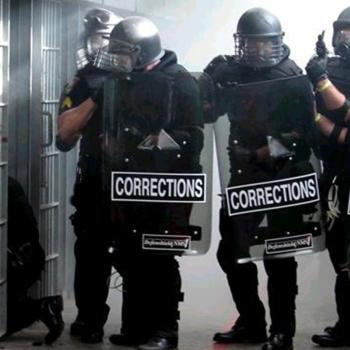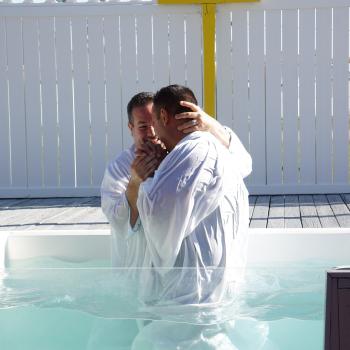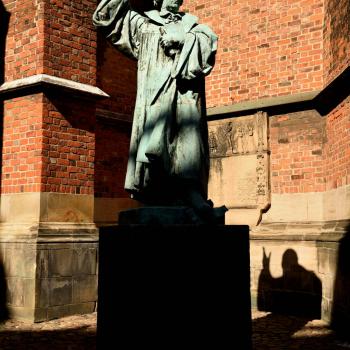Washington D.C., Nov 24, 2015 / 05:01 pm (CNA).- As the U.S. plans to increase its intake of Syrian refugees to 10,000 next year, Americans – including Catholics – are trying to balance national security concerns with compassion for the refugees. “Americans need to understand that responding to a core tenant of our faith to provide a compassion and care to suffering people like Syrian refugees and maintaining national security are not mutually exclusive – it is not an either or proposition,” said Dr. Susan Weishar, a migration fellow at the Jesuit Social Research Institute who directed immigration and refugee services for Catholic Charities of the Archdiocese of New Orleans for 14 years. “A rigorous, multi-layered, and lengthy vetting and security clearance procedure is in place to screen refugees,” she said in a statement to CNA. “As the leader of the free world, the wealthiest democracy on the planet – the U.S. must not turn its back on the Syrian refugees.” However, there are intelligence gaps that could jeopardize the vetting process for refugees, warned Seth G. Jones, who directs the International Security and Defense Policy Center at the RAND Corporation. “I actually think the U.S. needs better intel collection in Syria. So I would actually push more resources to setting up a technical architecture in Syria, and then resources for human collection in Syria,” he told CNA. An arduous screening process The Obama administration has announced its plan to accept at least 10,000 Syrian refugees into the U.S. next year. The U.S. has only accepted around 2,000 Syrian refugees total since the beginning of the Syrian civil war in 2011, and 1,682 of those were in fiscal year 2015. A spokesperson for the State Department acknowledged at a Nov. 23 daily press briefing that “certainly, we’re going to have to ramp up our personnel in order to process these because it’s such a rigorous and long process to get these people processed and placed.” Many Americans have expressed deep concerns about terrorists and extremists infiltrating the resettlement program, especially after Nov. 13 terror attacks in Paris killed 130 and injured several hundred. Several of the attackers are believed to have entered Europe through Greece, though it is not certain if they entered as refugees. In the wake of the attacks, U.S. Catholic bishops have asked Americans not to scapegoat all Syrian refugees as possible terrorists and to remember their dire humanitarian plight. “These refugees are fleeing terror themselves – violence like we have witnessed in Paris. They are extremely vulnerable families, women, and children who are fleeing for their lives,” said Bishop Eusebio Elizondo, the auxiliary bishop of Seattle who chairs the bishops' committee on migration, on Nov. 17 at the U.S. Catholic bishops’ fall general assembly. Over 30 governors have announced their refusal to accept Syrian refugees in their states. The House passed a bill last week to pause the resettlement program for refugees from Iraq and Syria until intelligence agencies could verify their status. Forty-seven Democrats joined Republicans in voting for the bill. Debate on the policy hinges on whether the resettlement process is itself secure, and whether an increase to 10,000 Syrian refugees in fiscal year 2016 will compromise security standards. Less than one percent of refugees worldwide are actually resettled. Most remain near their countries of origin, hoping to return home. And of this tiny percentage who are resettled elsewhere, a small portion are sent to the U.S. For these, priority is given to the most vulnerable persons like victims of torture, female-headed households, or those with severe and pressing medical needs. There are two ways for a refugee to enter the U.S.: travel to the border and claim asylum upon arrival, or through the refugee resettlement process. The United Nations ultimately determines where refugees will be resettled based on the urgency of their case and where they currently have family. If they are picked for the U.S., they still must undergo a rigorous security check. It is an arduous 21-step process of interviews and background checks conducted across multiple government agencies that takes 18 to 24 months to complete. The State Department’s principal deputy assistant secretary for the Bureau of Population, Refugees, and Migration, Simon Henshaw, called it “the most intensive security screening of any travelers to the United States” in a Nov. 19 special briefing. The process includes biometric and biographic checks, fingerprinting against FBI databases, and one-on-one interviews with the Department of Homeland Security, which has the discretion to deny admission to refugees on national security grounds. Syrian refugees are also subject to “additional screening,” the State Department has claimed. Refugees are “accompanied by resettlement agencies every step of the way,” Weishar said, and are assigned a case manager who is “very hands-on, client-centered.” “Since refugees go through several interviews, they have to be consistent in their answers,” said Kevin Appleby, director of the Office of Migration Policy and Public Affairs for the U.S. Conference of Catholic Bishops, at a Nov. 23 Capitol Hill briefing on refugee vetting and resettlement. “If there’s inconsistencies, then it’s a red flag. So if they don’t say the same thing to the same question,” he added, “then they’re knocked out [of the process] until something else can be confirmed.” “If the U.S. doesn’t have complete confidence in the case,” they won’t take it, Weishar added. “The resettlement program is probably the last program that someone who wants to commit harm would want to try to use to get to the United States,” said Brittany Vanderhoof, policy counsel for the Hebrew Immigrant Aid Society, at the Nov. 23 Capitol Hill briefing. The likelihood of someone passing through the program who plans to do harm in the U.S. is “very, very small,” she continued. And the administration’s planned acceptance of 10,000 Syrian refugees is a “goal, not a requirement,” she said. If refugees have “significant security concerns,” their cases will not be accepted just to meet the goal. Even with the increase to 10,000 Syrian refugees in 2016, the U.S. is “basically hand-picking” the cases, Weishar said, since there have been more than 4 million total Syrian refugees since the beginning of the country’s civil war in 2011. There is even “concern that it [the resettlement process] has been too lengthy,” she noted. Concerns remain Still, despite migration experts saying the interview process is secure, others are concerned about the lack of intelligence available from Syria and how that intel gap might affect the refugee vetting process. Biographical and biometric information on refugees is checked against law enforcement and intelligence databases, the State Department has said, but not everyone is confident in the current databases on Syria. Jones explained that the intelligence collection in Syria is not as good as it has been in other countries like Iraq, and this problem could definitely affect the refugee resettlement process. “We’re so much more limited on what we know in Syria because we’re not there,” he said. Thus, there is less available intelligence to confirm or contradict details in a refugee’s interview with U.S. authorities. “The issue is not that somebody is suspicious and they get sent through,” he said, noting that agents would not allow an obviously suspicious individual entry to the U.S. “The issue is if there’s no information on someone and they get interviewed, so there’s no disconfirming evidence that they’re anybody other than who they say they are, and their background, you can’t disprove it.” It is normal for there to be intelligence gaps in the refugees’ countries of origin, he noted, but Syria presents an abnormal case with Salafi jihadist groups there plotting attacks against the U.S. homeland. “That is, in my view, what makes this different,” he explained, that there are national security risks in Syria not present in many other countries. This risk is balanced against the fact that refugees have historically not been responsible for major terror plots in the U.S. “The terrorism threat for refugees has historically been limited. It’s not been zero. It’s been relatively limited, especially with the major plots,” he noted. “I would say, based on the threat that refugees have historically posed, and based on the risks, I wouldn’t put them high. I’d put them probably in a more medium category,” he concluded. He also suggested the possibility of a “limited security assessment” of refugees by the FBI or DHS after they have lived in the U.S. for a short period of time – perhaps six months. Imperfect solutions Dr. Rochelle Davis of Georgetown University’s School of Foreign Service, who has worked to resettle Iraqi refugees, admitted that the intelligence is not perfect, but said it rarely is for refugees from war-torn and unstable countries. “We may not know detailed information” about the last 20 years for each person, she noted, explaining that the plentiful intelligence available on Iraqi refugees from the Ba’ath Party archives and the U.S. military presence there was ultimately a “unique situation” in refugee resettlement However, she noted, the U.S. accepts tens of thousands of refugees each year from Syria and other countries. “We’re not going to know everything about them, but we do spend a lot of time trying to figure out as much as we can about them,” she said. “We have entrusted our intelligence agencies to do this process,” she said. Since 2011, the U.S. has let in almost 800,000 refugees and “we really have no cases of domestic terrorism being carried out. So clearly they’ve been doing a good job.” While the debate continues over the resettlement program for existing refugees, there are many other Syrian Christians and Muslims who fled the violence in Syria but are not classified as refugees. Why? Because they have not gone to the U.N. refugee camps and applied for refugee status. Thus they are not receiving U.N. aid and cannot be resettled elsewhere. Many are afraid to go to U.N. camps because of security concerns, said Michael La Civita, chief communications officer of the Catholic Near East Welfare Association. They fear attacks within the camps themselves, “reprisals” from terror groups like ISIS, who “absolutely detests” refugees for fleeing their caliphate, he added. Others simply don’t have the necessary identification documents and passports for resettlement because they had to leave their homes under threat of sudden death, he said. As a result, a whole group of persons are living in “limbo” in countries neighboring Syria like Lebanon and Jordan. The men are unemployed and the families are dependent on relatives, friends, or local churches for aid. In Lebanon, some mothers have resorted to prostitution just to feed their families. “Their world has come to an end,” La Civita said. “These are very, very tight-knit communities that were shattered overnight.” Families are fearful of their own neighbors and of the general security situation where they are living. For many, moving to another country is simply a “pipe dream.” Read more
















